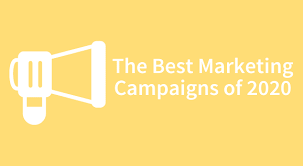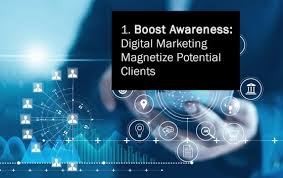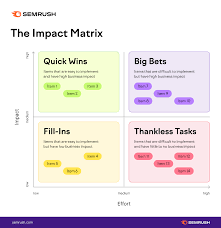2020 has been a year of unprecedented challenges and changes, but amidst all the chaos, the world of digital marketing has continued to evolve and innovate. In this article, we will explore some of the best digital marketing campaigns of 2020 that have captivated audiences, driven results, and set new standards for creativity and effectiveness.
Nike’s “You Can’t Stop Us” Campaign:
Nike is known for its powerful and inspirational marketing campaigns, and “You Can’t Stop Us” was no exception. Released during the global pandemic, this campaign showcased the resilience of athletes and individuals around the world. Through a seamless split-screen technique, Nike combined footage from different sports to highlight unity and determination in the face of adversity. The campaign struck a chord with viewers by emphasizing that even in challenging times, we can find strength within ourselves.
Burger King’s “Moldy Whopper” Campaign:
Burger King took a bold approach with their “Moldy Whopper” campaign. In an effort to promote their commitment to removing artificial preservatives from their products, they created ads featuring a time-lapse video of a Whopper decaying over 34 days. While initially shocking to viewers, the campaign successfully conveyed Burger King’s message: their food is made with real ingredients. This unconventional approach garnered attention worldwide and sparked conversations about food quality in the fast-food industry.
Dove’s #CourageIsBeautiful Campaign:
Dove has long been recognized for its inclusive and empowering advertisements, and their #CourageIsBeautiful campaign continued this tradition. The campaign featured real stories of healthcare workers on the frontlines during the pandemic, showcasing their strength and resilience. By highlighting these everyday heroes alongside messages of self-love and acceptance, Dove effectively connected with audiences on an emotional level while promoting its brand values.
Airbnb’s “Go Near” Campaign:
As travel restrictions were imposed worldwide due to COVID-19, Airbnb adapted its marketing strategy with the “Go Near” campaign. Recognizing that people were seeking local travel options, the campaign encouraged users to explore nearby destinations within driving distance. Airbnb’s clever use of data and personalized recommendations helped users discover unique and safe accommodations close to home. By addressing the changing needs of travelers during a challenging time, Airbnb successfully positioned itself as a trusted platform for local getaways.
Coca-Cola’s “Open Like Never Before” Campaign:
Coca-Cola’s “Open Like Never Before” campaign embraced the spirit of resilience and adaptation during the pandemic. The campaign featured a series of short films showcasing stories of individuals who found new ways to connect, create, and inspire during lockdowns. Coca-Cola’s message was clear: even in difficult times, there are opportunities for growth and innovation. This campaign resonated with audiences by capturing the collective spirit of perseverance and hope.
These digital marketing campaigns from 2020 demonstrate the power of creativity, empathy, and adaptability in reaching and engaging audiences effectively. Despite the challenges faced throughout the year, these brands managed to stay relevant and make a lasting impact through their innovative approaches.
As we move forward into 2021, it will be interesting to see how digital marketers continue to evolve their strategies in response to an ever-changing world. One thing is certain – creativity and authenticity will remain pivotal in capturing audience attention and creating meaningful connections in the digital space.
5 Tips for Successful Digital Marketing Campaigns in 2020
- Utilize data to personalize your campaigns
- Invest in content marketing
- Leverage influencer marketing
- Focus on mobile optimization
- Take advantage of social media platforms
Utilize data to personalize your campaigns
In the fast-paced world of digital marketing, utilizing data has become an essential strategy for creating successful campaigns. In 2020, this approach proved to be even more crucial as businesses sought to connect with their audiences in meaningful and personalized ways.
By harnessing the power of data, marketers gained valuable insights into consumer behavior, preferences, and demographics. This information allowed them to tailor their campaigns to specific target audiences, increasing the chances of resonating with potential customers.
One key aspect of personalization is delivering relevant content that speaks directly to individuals’ needs and interests. By analyzing data such as browsing history, purchase patterns, and demographic information, marketers were able to create highly targeted advertisements that addressed specific pain points or desires.
Personalization also extends beyond just delivering the right content at the right time. It involves creating unique experiences for each individual across various touchpoints. From personalized email marketing campaigns to dynamic website content based on user preferences, businesses successfully utilized data to provide a customized journey for their customers.
Moreover, personalization helps build trust and loyalty. When consumers receive tailored messages that align with their interests or previous interactions with a brand, they feel recognized and valued. This positive experience fosters a sense of trust and increases the likelihood of repeat business and customer advocacy.
Data-driven personalization also enables marketers to measure campaign effectiveness accurately. By tracking metrics such as click-through rates, conversion rates, and customer engagement levels for personalized campaigns versus generic ones, businesses can determine which strategies are yielding the best results. This allows them to refine their approaches continuously and optimize future campaigns.
As we move forward into 2021 and beyond, utilizing data for personalization will continue to be a vital component of successful digital marketing campaigns. With advancements in technology and access to more extensive datasets, businesses have an unprecedented opportunity to connect with their audiences on a deeper level.
By leveraging data insights effectively, marketers can create highly targeted campaigns that resonate with individuals’ unique needs, preferences, and behaviors. This personalized approach not only drives better results but also helps build long-lasting relationships with customers, ultimately leading to business growth and success in the digital landscape.
Invest in content marketing
In the fast-paced world of digital marketing, one strategy that has consistently proven its worth is content marketing. As we reflect on the best digital marketing campaigns of 2020, it becomes clear that investing in content marketing can yield remarkable results.
Content marketing involves creating and distributing valuable, relevant, and consistent content to attract and engage a target audience. It goes beyond traditional advertising by providing useful information, entertainment, or inspiration to consumers. Here’s why investing in content marketing is a smart move for businesses:
- Building Brand Authority: Content marketing allows you to establish yourself as an industry expert. By creating high-quality and informative content, you can position your brand as a trusted source of knowledge. This not only helps build credibility but also fosters long-term relationships with your audience.
- Increasing Organic Traffic: Search engines love fresh and valuable content. By consistently publishing relevant articles, blog posts, videos, or podcasts, you enhance your website’s visibility in search engine results pages (SERPs). This increases the chances of attracting organic traffic to your site and generating leads.
- Engaging and Nurturing Leads: Content marketing provides an opportunity to engage with potential customers at different stages of their buyer’s journey. Through informative blogs or engaging social media posts, you can capture their attention, address their pain points, and nurture them towards making a purchase decision.
- Enhancing Social Media Presence: Compelling content is highly shareable on social media platforms. When your audience finds value in what you create, they are more likely to share it with their networks. This amplifies your reach and exposes your brand to new audiences who may become potential customers.
- Encouraging Customer Loyalty: By consistently delivering valuable content that resonates with your target audience’s needs and interests, you can foster loyalty among existing customers. Engaged customers are more likely to become repeat buyers and advocates for your brand.
The best digital marketing campaigns of 2020 showcased the power of content marketing in connecting with audiences, driving traffic, and achieving business goals. By investing in content creation, distribution, and optimization, businesses can establish themselves as industry leaders, attract organic traffic, engage leads, enhance their social media presence, and cultivate customer loyalty.
As we move forward into 2021 and beyond, it’s clear that content will continue to play a crucial role in digital marketing success. So, if you haven’t already done so, now is the time to invest in content marketing and reap the benefits it has to offer.
Leverage influencer marketing
In the fast-paced world of digital marketing, one strategy that has gained significant traction in 2020 is influencer marketing. Leveraging the power of social media influencers has proven to be an effective way to reach and engage target audiences in a more authentic and relatable manner.
Influencer marketing involves collaborating with individuals who have a strong following and influence on platforms like Instagram, YouTube, or TikTok. These influencers have built trust with their audience through their expertise, authenticity, and engaging content. By partnering with them, brands can tap into their established fan base and leverage their influence to promote products or services.
One of the key advantages of influencer marketing is its ability to create a more organic connection between brands and consumers. Unlike traditional advertising methods that can feel intrusive or impersonal, influencer marketing allows brands to seamlessly integrate their messaging into the influencer’s content. This approach feels more genuine and trustworthy, leading to higher engagement and conversion rates.
Moreover, influencers often possess deep insights into their audience’s preferences and behaviors. They understand what resonates with their followers and can tailor campaigns accordingly. This level of personalization helps brands deliver targeted messages that are more likely to resonate with consumers, resulting in increased brand awareness and customer loyalty.
Another benefit of influencer marketing is its potential for virality. Influencers have the ability to amplify brand messages by sharing them with their followers who are already highly engaged. When an influencer endorses a product or service, it can create a ripple effect as followers share the content further within their own networks. This organic spread of brand messaging can significantly increase visibility and generate buzz around a campaign.
However, it’s important for brands to choose influencers carefully based on relevance, credibility, and alignment with brand values. It’s not just about follower count; it’s about finding influencers whose audience overlaps with your target market. Authenticity is key here – audiences are quick to spot inauthentic endorsements, which can harm both the influencer’s and the brand’s reputation.
In conclusion, leveraging influencer marketing has been a winning strategy for many brands in 2020. By partnering with influencers who have a genuine connection with their audience, brands can tap into their influence and create more meaningful connections with consumers. As we move forward, influencer marketing will likely continue to evolve and play a crucial role in digital marketing strategies, offering exciting opportunities for brands to engage with their target audience in innovative ways.
Focus on mobile optimization
In the ever-evolving world of digital marketing, one tip that stood out in 2020 was the importance of mobile optimization. With the increasing number of people using smartphones and tablets to access the internet, businesses had to adapt their marketing strategies to cater to this growing mobile audience.
Mobile optimization refers to the process of designing and optimizing websites, ads, and content specifically for mobile devices. It involves creating a seamless user experience that is tailored to smaller screens, touch navigation, and faster loading times.
Why is mobile optimization crucial for digital marketing campaigns? The answer lies in the numbers. According to Statista, over half of all website traffic worldwide comes from mobile devices. This means that if your website is not optimized for mobile users, you could be missing out on a significant portion of potential customers.
Furthermore, search engines like Google prioritize mobile-friendly websites in their rankings. So by neglecting mobile optimization, you not only risk losing potential customers but also lower your chances of appearing prominently in search results.
In 2020, several successful digital marketing campaigns recognized the significance of mobile optimization and reaped its benefits. These campaigns focused on creating responsive websites that automatically adjusted to different screen sizes and offered smooth navigation on touchscreens.
Additionally, they optimized their ad creatives for smaller screens by using concise messaging and captivating visuals that captured attention quickly. By understanding the unique user behavior patterns associated with mobile devices – such as shorter attention spans and on-the-go browsing – these campaigns were able to deliver targeted messages effectively.
Furthermore, incorporating features like click-to-call buttons or easy-to-use forms streamlined the conversion process for mobile users. This helped drive higher engagement rates and increased conversions.
As we move forward into 2021 and beyond, it’s clear that focusing on mobile optimization will continue to be a crucial aspect of successful digital marketing campaigns. Businesses must prioritize creating a seamless user experience across all devices – desktops, tablets, and smartphones – to stay competitive in the digital landscape.
By embracing mobile optimization, businesses can tap into the vast potential of the mobile audience, improve their search engine rankings, and enhance overall user satisfaction. So if you’re planning your next digital marketing campaign, make sure to prioritize mobile optimization for maximum impact and success.
Take advantage of social media platforms
In the fast-paced digital landscape of 2020, one tip stood out among the rest for creating successful digital marketing campaigns: taking advantage of social media platforms. Social media has become an integral part of our daily lives, and leveraging its power can make a significant impact on your marketing efforts.
Social media platforms offer an unparalleled opportunity to connect with your target audience, build brand awareness, and drive engagement. With billions of active users across various platforms like Facebook, Instagram, Twitter, and LinkedIn, the potential reach is immense.
One key advantage of social media is its ability to facilitate two-way communication. It allows brands to engage directly with their customers through comments, messages, and live chats. This real-time interaction fosters a sense of community and builds trust with your audience.
Moreover, social media platforms provide powerful targeting options that enable you to reach specific demographics based on interests, behaviors, location, and more. This level of precision ensures that your message reaches the right people at the right time.
To maximize the impact of your digital marketing campaigns on social media platforms, it’s essential to develop a comprehensive strategy. Start by identifying your goals and target audience. Then create compelling content that resonates with your audience’s interests and pain points.
Consistency is key when it comes to social media marketing. Regularly posting high-quality content helps maintain visibility and keeps your brand top-of-mind for your followers. Utilize a mix of engaging visuals, informative articles or videos, user-generated content, and interactive posts to keep your audience engaged.
Don’t forget to monitor and analyze the performance of your campaigns using built-in analytics tools or third-party software. This data will provide valuable insights into what’s working well and what needs improvement. Use this information to refine your strategy continuously.
In conclusion, harnessing the power of social media platforms can be a game-changer for your digital marketing campaigns in 2020 and beyond. By leveraging these platforms effectively, you can connect with your audience, build brand loyalty, and drive tangible results. So, embrace the opportunities that social media presents and unlock the full potential of your digital marketing efforts.




